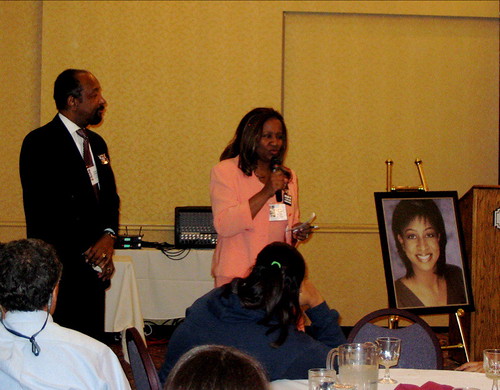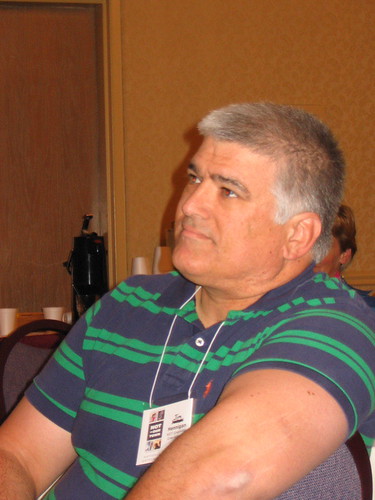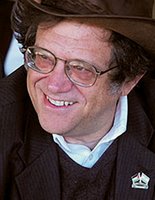
Another post about the Not In Our Town gathering in Bloomington, October 2006: Nobody knew how emotional it would be to hear the stories in a room together over two early Autumn days. The stories had already been told in the "Not In Our Town" documentary series, but many were dabbing their eyes and standing to applaud spontaneously as they met in the flesh, exchanged hugs, and listened to the re-tellings. Though it took place in a rather institutional, unadorned hotel meeting room, it breathed with the quality of a tribal campfire where great stories are repeated and passed down and beyond to the next tellers.
These were ordinary folks from several dozen communities who had done extraordinary things to confront acts of hate and intolerance. Unfortunately, the biggest local hero of all could only be seen on a videotape. She died in December 2005 from a rapid viral attack at age 26. As a 15 year old, Liz Halbert had been one of the founders of the Not In Our Town chapter in Bloomington. She exuded the passion and clarity that are often more clearly expressed by a teen-ager. She’d been a panelist at the President’s Conference on Hate Crimes. When she got to college at Eastern Illinois University, she experienced an ugly, all-too-common incident. A group of white men yelled out “Nigger” at her from a passing car. She called her parents to invite them to a forum she’d organized after the incident. They said they expected to see about 25 people there and wanted to support their daughter. They should have known there would be hundreds including the mayor and the chief of police. An African-American senior stood up at the forum and declared that Liz’s incident wasn’t all that uncommon, but it was shocking that it took a freshman to show the community that it needed to deal with it.
We watched Elizabeth, a beautiful, Miss Illinois contestant, explain on tape that, “we’re all ignorant. There’s just so many cultures we can’t fully know. But we can control our ignorance rather than let it control us.”












